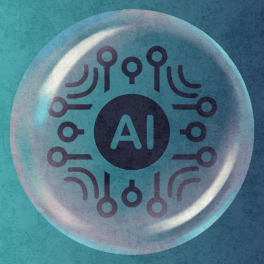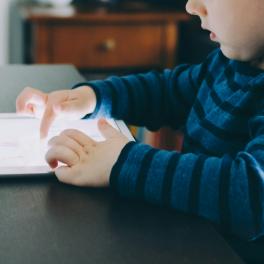
With the rapid development of artificial intelligence technology, this era has been termed as “The Golden Era of AI”. AI has started to intermingle with each and every field of life and many fear AI will soon replace humans in most of the workplaces. But along with its rewards, there come the complexities which are harder to unravel. The concept of AI judge currently floating around the legal field, creating an atmosphere of skepticism towards Artificial Intelligence.
The verdict given by an AI judge will be based solely on the information provided to it without any direct or indirect influence on it. This eradicates the chances of a verdict based upon emotions, which is both fruitful and harmful at the same time. On one hand, it will remove the biased judgments with respect to gender especially in family cases and on the other hand it will not take into account ethical values in order to give a verdict.
The judgement of AI judges will be based upon the statutes provided to it along with the legal precedence set by human judges and it is designed to be impartial. However, the verdict given by AI judges could be based upon the precedence set by the then-biased human judge. Yet, AI judges are expected to be unbiased through every means, which is a difficult concept to grasp.
The right to appeal is a fundamental aspect of the judicial system, providing a mechanism for review and correction of legal decisions. When each AI judge is provided with the same set of legal information in order to give a verdict, the right to appeal appears to be abolished as the superior AI judge with the same set of legal knowledge and the same set of precedence will apply the jurisprudence in the same manner. In this way, the verdict of a lower AI judge will never be overturned by a superior AI judge which will strictly threaten the justice system. This may be avoided if defendants are given the right to appeal to a human judge.
Among the three pillars of the State – executive, legislation and judiciary – the judiciary has the responsibility to implement the laws along with its interpretation. Human judges often take into account the real intention of the lawmakers while interpreting the law, whenever there is a need. Whereas AI lacks the capability to ensure this function properly. Furthermore, AI may struggle to provide accurate verdicts in an unprecedented or highly complex case which requires a novel interpretation of the law.
Stepping into the realistic world, an AI judge is a machine that could potentially make errors, while also facing risks related to cybersecurity, software bugs, and data breaches. But the main problem emerges as who will be responsible for the wrongdoing or injustice done by an AI judge? The modern jurisprudence is yet to resolve the complexities posed by the advancements in the field of AI. With all these complexities, Will AI judges gain the public trust?
Support Young Creators Like This One!
VoiceBox is a platform built to help young creators thrive. We believe that sharing thoughtful, high-quality content deserves pay even if your audience isn’t 100,000 strong.
But here's the thing: while you enjoy free content, our young contributors from all over the world are fairly compensated for their work. To keep this up, we need your help.
Will you join our community of supporters?
Your donation, no matter the size, makes a real difference. It allows us to:
- Compensate young creators for their work
- Maintain a safe, ad-free environment
- Continue providing high-quality, free content, including research reports and insights into youth issues
- Highlight youth voices and unique perspectives from cultures around the world
Your generosity fuels our mission! By supporting VoiceBox, you are directly supporting young people and showing that you value what they have to say.





